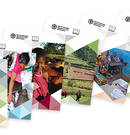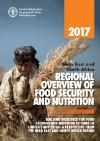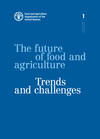资源
Achieving the food security, nutrition and sustainable agriculture goals by 2030 requires a coordinated set of actions on a number of fronts: coherent policies and programmes, an increase of investments in line with national priorities and greater collaboration across different sectors and stakeholders.
It is in this context that FAO and the EU, through the “Food and Nutrition Security Impact, Resilience, Sustainability and Transformation” (FIRST) programme are supporting governments and their development partners in creating a policy and institutional environment that is conducive to the achievement of SDG2.
The 2017 Near East and North Africa (NENA) edition of the Regional Overview of Food Security and Nutrition comes under the theme of “building resilience for food security and nutrition in times of conflict and crisis”.
What will be needed to realize the vision of a world free from hunger and malnutrition?
After shedding light on the nature of the challenges that agriculture and food systems are facing now and throughout the 21st century, the study provides insights into what is at stake and what needs to be done. “Business as usual” is not an option. Major transformations in agricultural systems, rural economies and natural resources...
国际社会正致力于到2030年在全球范围内消除饥饿和一切形式的营养不良。虽然已该领域取得较大进展,但冲突和人为及自然灾害却在阻碍我们的进展。今年的《世界粮食安全和营养状况》报告提出警示,食物不足现象持续减少的趋势似乎已经结束,甚至可能已经逆转,主要原因就是上文提及的各项因素。同时,我们虽然在减少儿童营养不良方面继续取得进展,但超重和肥胖人数增加在世界多数地方已成为人们的关切。 2017年版《世界粮食安全和营养状况》(原名《世界粮食不安全状况》)对以上问题及其他主要发现做了详细分析。今年的报告首次由更多机构联手编写,除联合国粮食及农业组织、国际农业发展基金和世界粮食计划署外,又新增联合国儿童基金会和世界卫生组织。
With the adoption of the 2030 Agenda for Sustainable Development and its ambitious goals for a more sustainable and equitable world, countries and their international partners committed themselves to regular monitoring and reporting on progress.





